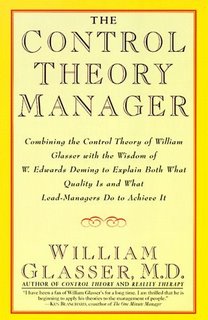
For Jim
(International Economics)
Free Trade: A Failure to Negotiate
This essay will examine the statement, "Free Trade is Fair Trade" in the context of research on the topic through brief analysis. Free trade has evolved from a historical trade theory of competitive advantage more than two hundred years old. Whereas proponents claim lowered tariff barriers benefit the poor, improve labour standards, and protect the environment, fair trade as a concept of empowerment of the rights of workers has evolved from the principles of OXFAM, in fewer than thirty-five years, and has few convergences with free trade. A conclusion based on humanitarian principles is reached, "Free Trade is not Fair Trade".
Economists have used the arguments of David Ricardo for centuries to arrive at fair trade as specialisation of production leading to competitive advantage and, "the absence of barriers to the free flow of goods and services between countries." (Hill, 2003, p.384) Coincidentally, ILO core standards were not in place, nor applied in the age of Ricardo and might have implied value-added in terms of human rights, which in contemporary nations would forestall foreign investment due to costs of labour law standardization. However, this definition does not satisfy the perception among many societies as to the effects of free trade in terms of market distortions or failures. Non-economists attach, "an infinite weight to jobs they lose to trade and zero weight to jobs that are created..." (Baghwati, 2002, p.5) Dissatisfaction towards free trade brews among the shrinking middle-classes, in that the highest growth employment sector in the USA is the position of cash register attendant or that of Mexico is the ten-dollar-a-day, twelve-hour-a-day production worker position in maquilladora industries. (MacArthur, 2000)
Baghwati also posits that, "if markets do not work well, or are absent or incomplete... free trade cannot then be asserted to be the best policy." (2002,p.12) Job losses due to lower tariff barriers are perceived as the result of government deregulation attached to corporate concepts of self-regulation. Revenues governments once gained from tariffs are diminished; companies contributing high-paying jobs and tax revenue require enticements and tax cuts to remain. Such globalisation has regionalized production through auspices of the GATT, the WTO, and NAFTA without free votes among their electorate to pass such trade agreements. "The hours men and women worked, the wages they received, the conditions of their labour- these have passed beyond the control of the people..." (Roosevelt, 1936, in Hartmann, 2002, p.287) The agenda of the WTO, "extends beyond free trade...to ensure that markets are accessible to foreign commercial suppliers while at the same time they are secured for their investments." (Arup, 2000, p.9) According to Dr. Noreena Hertz of Cambridge University, as of 2001, in every environmental or species dispute that had come before it, "the WTO has ruled in favour of corporate interests against the wishes of democratically elected governments." (Hartmann, 2002, p.143)
Economists such as Baghwati, or Patrick Low of the WTO believe competitive advantage is a theory with which, "free trade can correspondingly be shown to be the optimal way to choose trade (and associated domestic production)." (Baghwati, 2002, p.12) Economic long-term historical data can also be shown to be less reliable than favourable short-term statistics when required, as in the case of NAFTA, where, "the ex ante expectations with respect to potential average cost savings stemming from trade liberalisation between Canada and the United States under the FTA were overly optimistic." (Keay, 2003, p.387) Further, Ricardian economists are neither willing to proclaim the success of NAFTA, nor to consider it a failure, indicating lack of evidence to support either assumption. "It is hard to evaluate NAFTA because it has only been in effect for five years..." (Shahabuddin, 2003, p.307) Competitive advantage and free trade can be selectively shown to operate to the benefit of the global economy, with forwards of current account surpluses out of national economies into US Treasury markets due to lack of local investment quotas. (Smith, 2002;Belderbos, Jie-a-Joen & Sleuwaegen, 2002)
The future ability for a nation such as Mexico (or any nation) to regulate foreign investments has been signed away, forever to the disadvantage of local workforces. "An export driven Mexican economy resulting from free trade has developed a more unequal distribution of income and evidence of falling real wages in a majority of the country's workers." (de la Garza 1994; Robinson, 1998-99; Dussel Peters 2000; Marina Flores 2001; in Gereffi, Spener, and Bair, 2002, p.328) Deregulated, barrier-free markets effectively outlaw local content requirements (LCR) among member countries. Yet research indicates FDI has not always been limited by LCR. "If economies of scale are not important and if the foreign firm is relatively efficient, the imposition of the LCR induces FDI." (Belderbos, Jie-a-Joen & Sleuwaegen, 2002, p.175)
"Fair Trade" as defined by OXFAM, not Ricardo or Baghwati, is the attempt, "to over-come poverty by enabling producers or workers to access the market in ways which enable them to obtain a fair return for the goods they grow or make." (Wilshaw in Jenkins, Pearson & Seyfang, 2002, p.209) NAFTA devasted Mexican cornfields, with over a million farmers forced to leave their homes and livelihoods as no ratification prevents corporate dumping among member nations. (Pollan, 2004) Free trade aims of reduction of poverty, or increase in environmental protection appear unaligned arguments, with greater similarity to OXFAM principles of fair trade developed in the 1970s. Oxfam established principles that included fair local wages, participatory decision-making, gender equity, protection of child labour, and sustainability of resources. (Wilshaw in Jenkins, Pearson & Seyfang, 2002) Thus it seems falacious to argue that free trade is equivalent to fair trade.
Free trade has never been free or fair. "No government on Earth permits totally free trade." (Aaronson, 2001, p.11) Notwithstanding, the arguments against free trade in North America have included the fact that it discriminates against Japanese and European trading partners and the workers of member nations themselves. "The inescapable contradiction of open regionalism is that it is not really open, because any regional arrangements for trading purposes are bound to give preferences to members against non-members." (Bhalla & Bhalla, 1997, in Carranza, 2002, p.155)
Host countries are cost reductions for investing companies, not spin-offs for their workforces, as, "developed nations have been able to produce more manufactured goods with fewer people." (Burtless, Lawrence, Litan & Shapiro, 1998, in Irwin, 2000, p.14) Southeast Asia and Mexico have been FDI destinations for multinational corporations seeking cheap labour, low environmental standards, reduced benefits and costs, which contributes to falling domestic investment, increases in low wage service jobs, falling union memberships, and falling growth in public infrastructure in home countries. (Gereffi, Spener & Bair, 2002; Hartmann, 2002; MacArthur, 2000) Price competition among nations has not benefited the worker, "as the demand for labour becomes more elastic, more of the cost of labour standards is borne by workers rather than firms." (Rodrik, 1997, in Irwin, 2000, p.16) The low wage, non-unionized environments of debt-burdened, underdeveloped countries provide the bald evidence of short-term gains. "Southeast Asians gained no pricing power on their exports; in this important respect they acquired no significant influence in world markets...Domestic demand was more or less ignored." (Smith, 2002, p.51) South East Asia and Mexico share a future similar to modern China , which is developing as a highly stratified society with a vast population of marginalized labourers. (Smith, 2002)
Free trade does not define benefits to the poor, or definition of fair market prices for goods or services produced in developing nations. It does not satisfy global middle class perceptions that job losses due to trade are a necessary benefit, or that job creation at lower benefits levels based upon free trade, will represent measurable improvements. The winners can be distinguished with exploration of long-term studies of middle-class statistics in the USA. "More- and richer rich, more poor, fewer in the middle: the pattern is clear, and it is a Latin American, not a North American, pattern." (Beatty, 1994, p.66) Multiple reasons for such patterns are posited to be combinations of rising energy prices, lowered rates of domestic investment, shifts from high wage manufacturing to low wage services employment, declining public-sector union membership, rising shareholder dividends, and falling growth in public infrastructure. (Beatty, 1994; Aaronson, 2001)
In conclusion, "Free Trade" is of greatest benefit to the rich, and to large corporate dividend-yileding shareholders. "There is widespread exploitation of workers." (Prieto, Hadjipateras & Turner, 2002, p.146) "Free Trade" prevents many from earning a decent living. "Liberty requires opportunity to make a living- a living decent according to the standard of the time, a living which gives man not only enough to live by, but something to live for. " (F.D.R., 1936, in Hartmann, 2002, p.287)"Free Trade" cheapens the price of the working poor in every country on earth. "The bottom line is that neither the average working people of rich nations nor those of poor nations have benefited from free trade or its corollaries: The gains have gone to a few hundred corporations that are each larger, economically, than most nations. These treaties and agreements simply encourage a 'race to the bottom', pushing wages down here and exploiting people aborad so that multinational corporations can expand their profits." (Sanders, 2001, in Hartmann, 2002, p.144)
Bibliography
Aaronson, S.A. (2001), Taking Trade to the Streets: the Lost History of Public Efforts to Shape Globalisation, University of Michigan Press, Ann Arbour.
Arup, C. (2000), The New World Trade Organisation Agreements: Globalizing Law Through Services and Intellectual Property, Cambridge Press, Hong Kong.
Belderobos, R., Jie-A-Joen, C., Sleuwaegen, L. (2002), 'Local content requirements, vertical cooperation, and foreign direct investment',
De Economist, vol. 150, iss. 2, pp. 155-180.
http://80-proquest.umi.com.ezproxy.uow.edu.au/ [Accessed: 31 October, 2004]
Bhagwati, J.N. (2002), Free Trade Today, Princeton University Press, New Jersey.
Bondzi-Simpson, P.E. (1990), Legal Relationships between Transnational Corporations and Host States, Quorom Books, New York.
Burnett, R. (1994), The Law of International Business Transactions, Federation Press, Sydney.
Carranza, M.E. (2002), 'Critical debates: Neighbours or partners? NAFTA and the politics of regional economic integration in North America',
Latin American Politics and Society, vol. 44, iss. 3, pp. 141-159.
http://80-proquest.umi.com.ezproxy.uow.edu.au/ [Accessed: 26 September, 2004]
Gereffi, G., Spener, D., and Bair, J. (2002), 'NAFTA and Uneven Development in the North American Apparel Industry', in Gereffi, Spener, and Bair (Eds), Free Trade and Uneven Development: The North American Apparel Industry After NAFTA, Temple University Press, pp. 327-340.
Girouard, R.J. (2003), 'Water export restrictions: A case study of WTO dispute settlement strategies and outcomes',
Georgetown International Environmental Law Review, vol. 15, iss. 2, pp. 247-300.
http://80-proquest.umi.com.ezproxy.uow.edu.au/ [Accessed: 26 September, 2004]
Hartmann, T. (2002), Unequal Protection: The Rise of Corporate Dominance and the Theft of Human Rights, Rodale, Emmaus, Penn.
Hearn, P. (1987), International Business Agreements: A practical guide to the negotiation and formulation of agency, distribution, and intellectual licensing agreements, Gower, London.
Hertel, T.W. (1997), Global Trade Analysis: Modelling and Applications, Cambridge Press, New York.
Hill, C.W. (2003), International Business: Competing in the Global Marketplace (Fourth Edition), McGraw-Hill/Irwin, Sydney.
Keay, I. (2003), 'An Empty Promise: Average Cost Savings and Scale Economies among Canadian and American Manufacturers, 1910-1988',
Southern Economic Journal , vol. 70, iss. 2, pp. 374-388.
http://80-proquest.umi.com.ezproxy.uow.edu.au/ [Accessed: 26 September, 2004]
MacArthur, J.R. (2000), The Selling of "Free Trade", Hill and Wang, New York.
Prieto, M., Hadjipateras, A., and Turner, J. (2002), 'Chapter 12: the potential of codes as part of women's organizations' strategies for promoting the rights of women workers: a Central America perspective', in jenkins, A., Pearson, R. and Seyfang, G. (eds.), Corporate Responsibility and Labour Rights: Codes of Conduct in the Global Economy, Earthscan Ltd. London, pp.146-159.
Ross, R.J.S. (2002), 'The New Sweatshops in the United States: How New, How Real, How Many, and Why?', Gereffi, Spener, and Bair (Eds.), Free Trade and Uneven Development: The North American Apparel Industry After NAFTA, Temple University Press, pp. 100-122.
Wilshaw, R. (2002), 'Chapter 17: Code Monitoring in the informal fair trade sector: the experience of OXfam GB', in Jenkins, A., Pearson, R. and Seyfang. G. (Eds.), Corporate Responsibility and Labour Rights: Codes of Conduct in the Global Economy, Earthscan Ltd. London, pp.209-221.
















